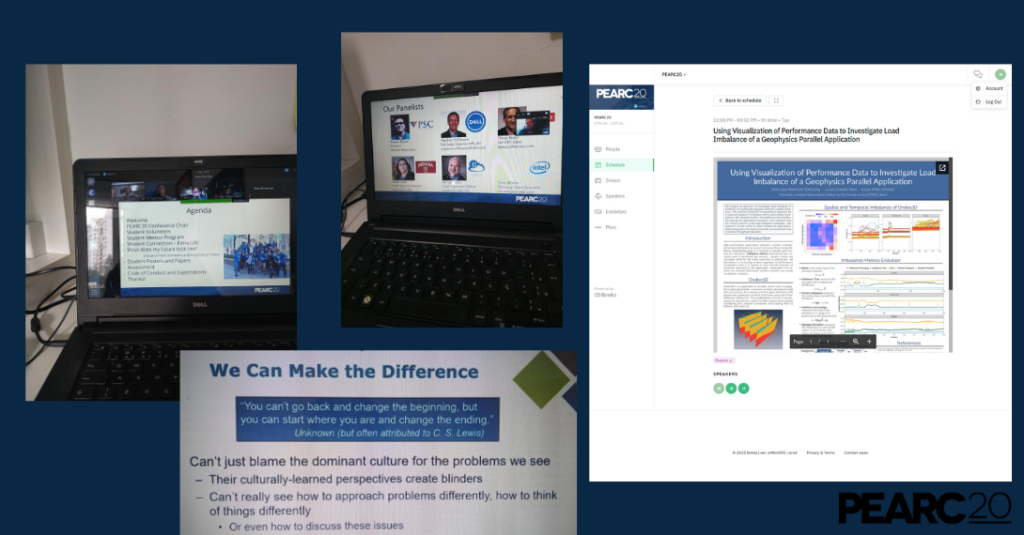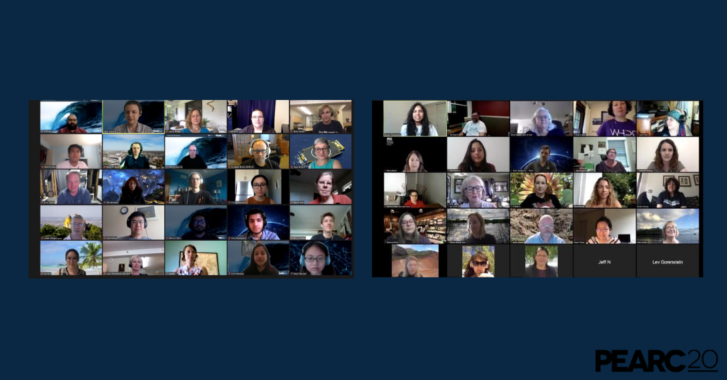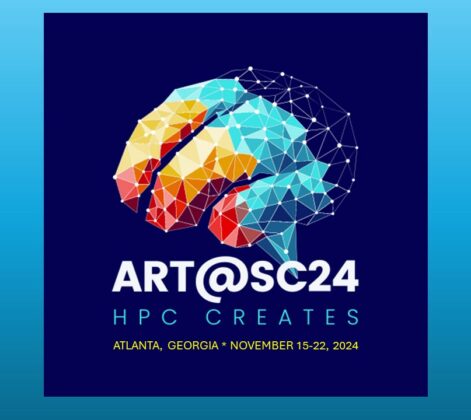
By Ana Luisa Veroneze Solorzano,
Federal University of Rio Grande do Sul, Brazil.
I was excited to attend the Practice & Experience in Advanced Research Computing (PEARC) conference for the first time. Even in this year’s virtual mode, I felt that the PEARC20 week was intense – almost as if I had attended in-person!
First, I set up my daily schedule using the conference interface, Brella. This allowed participants to enter virtual rooms to see each presentation and contribute to interactive dialogue, before migrating to the next session. I participated in the PEARC20 Student Program, too. It was a great week, and I felt extremely welcome by the PEARC community; I can tell that everyone put a lot of effort into making sure it was a fantastic experience for all!
DAY ONE: I first attended the Advanced MPI workshop, which was very interesting since I had practiced MPI during a master’s class. We got access to the Stampede2 supercomputer at the Texas Advanced Computing Center (TACC)! Then I attended the Student Welcome and the Student Mentor Program, where I ‘virtually’ met my mentor and chatted with the other mentors and mentees. I was delighted to be paired with Jonathan Bentz, Solutions Architect Manager at NVIDIA, and he is motivated to make the best of the experience. I highly recommend other students to participate in mentoring programs. It is an excellent opportunity to be inspired and learn from a person more experienced than you who will have different perspectives to share about your career goals.
The Speed Networking Onboard, presented by Chief Security Analyst Susan Sons (Indiana University), was an invaluable experience. I learned how to network well and how important it is to recognize your skills and be confident about them. I have been working on my elevator pitch and self-presentation!
Lastly, I participate in the Exhibitor/Student Panel, where I learned what it is like to work in industry vs. academia, recent trends in HPC, and how to start a path in both environments. Nowadays, research impacts every aspect of our lives, and HPC has a role in all domains.
DAY TWO: The poster session was announced! I presented my poster, “Using Visualization of Performance Data to Investigate Load Imbalance of a Geophysics Parallel Application.” Following my presentation, I took the rest of that day to see the rest of the posters and ask questions of the authors. Then there was my favorite part of PEARC20: Professor Cherri Pancake’s (Oregon State University) plenary titled, “Can We Change the Face of Computing?” It was inspiring to hear about her experiences. She talked about “tech culture” and how important it is that we encourage diversity so that everyone feels that they are included. Everyone needs to be an agent of tech culture change. With increased diversity, we will have better innovation, and all will feel comfortable entering and staying in the industry.
DAY THREE: I attended the “Workforce development, diversity, and professionalization” session and the second plenary titled, “Introduction of the new NSF Innovative HPC systems.” It was interesting to see what the U.S. National Science Foundation is funding, and to learn more about the advanced tools they are developing to serve the needs of data-intensive research—especially artificial intelligence workflows.
DAY FOUR: I watched two papers presentations on “Advanced Computing Environments” and “Application Software, Support, and Outcomes,” and the third plenary with Program Director Amy Friedlander (NSF). On this day, I learned about how HPC is being used in a variety of domains outside of my area of expertise.
DAY FIVE: On the last day, I attended the workshops, “High Throughput Science” and a tutorial on “Modern Tools for Supercomputers.” Toward the end of the day, there was a Women in HPC meeting that was open to all PEARC attendees. The conference week couldn’t end in a better way! I heard inspiring stories from other women about their HPC careers, and I created new connections.
I want to thank the PEARC20 committee and STEM-Trek; particularly Elizabeth Leake, for supporting my PEARC registration and for contacting me to make sure that I was enjoying the week. I loved the conference and the opportunity to share my work with such amazing people who work with advanced research computing. I was glad to learn that recorded sessions will be available to PEARC20 registrants via the Association of Computing Machinery (ACM) Digital Library. Since the virtual conference was so meaningful, I cannot wait to attend PEARC again in person!





